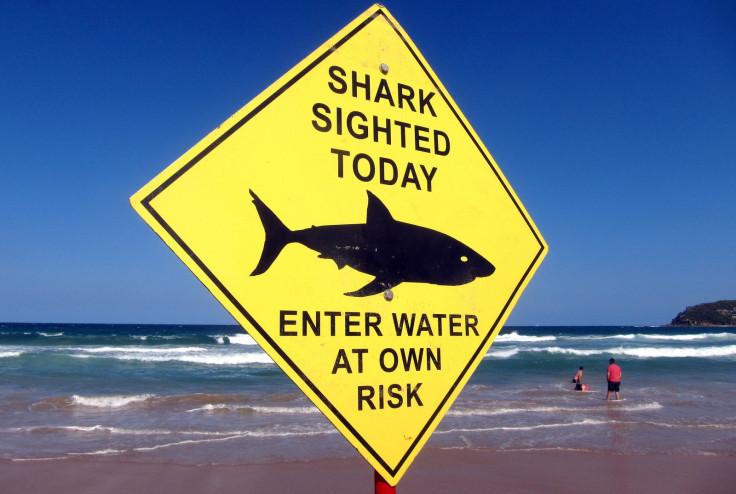Shark Week 2017: How to survive an attack
It's rare, but it happens.
Avoiding shark infested waters aside, there are plenty of ways to minimise the risk of being attacked.
The chance of getting attacked by a shark is miniscule. Estimates vary, but the figure one in 3.7 million is often cited - which means you're more likely to get hit by lightning or trampled to death by a cow.
Nevertheless, there are lots of things you can do to avoid getting attacked – and potentially eaten – by a shark.
In a helpful article, George H. Burgess, a senior biologist at the Florida Museum of Natural History, lays out 14 key ways to lower your risk of being attacked.
- Most obviously - don't go swimming in shark infested waters.
- Also obvious - don't go into the water if you are bleeding. Sharks can smell a drop of blood from a quarter of a mile away. And they can trace it back to the source.
- Don't go swimming in the sea at dusk, dawn or at night. This is when sharks are most active.
- Don't swim in water with sewage – it attracts bait fishes, which then attract sharks.
- Don't wear shiny jewellery because it makes you look all shimmery like fish scales.
- Don't wear brightly coloured clothing as sharks can see contrasting colours well.
- Don't swim alone or go too far from shore. Lone individuals are at greater risk of attack and you are more isolated if you need help.
- Don't splash around – erratic movements make sharks think you are vulnerable.
- Avoid swimming if there are diving seabirds and dolphins – they often go for the same prey.
Most of the time, sharks do not mean to attack humans. But when they do they are either provoked or unprovoked. Provoked is where humans touch them – be it through unhooking them when they are caught by accident or people grabbing them while diving.
There are three different types of unprovoked attacks. Hit-and-run attacks occur near beaches, which is when sharks mistake the movement of humans for fish. The shark may bite a human's legs or feet, but these attacks are less likely to be fatal.
Sneak attacks occur in deeper water when the victim doesn't see the shark before the attack. This can result in serious injury or death. Bump-and-bite attacks happen when the shark circles and bumps the victim before biting.

Does being on your period increase the chance of being attacked by a shark?
At present the evidence is murky. Sharks can detect blood in the water – and any bodily fluid is attractive to them. However, there is no evidence to suggest women who are on their periods are at increased risk of attack.
The vast majority of shark attack victims are males. This is down to them being more likely to engage in watersports like surfing and diving.
The advice from the Florida Museum? "Don't worry about it. Lots of women safely dive while menstruating. Although we haven't got solid scientific data on the subject, so far we haven't seen any obvious pattern of increased attacks on menstruating women."
What to do if you are attacked by a shark?

If you are about to be attacked, you should defend yourself using any weapon you can get your hands on, but don't use your hands or feet. Aim for the shark's eye, gills or snout.
If a shark gets you in its mouth, you should be as aggressive as possible - playing dead won't help.
If you've been bitten, try to stem the bleeding and leave the water calmly and quickly and seek medical attention for any injury.
Why sharks should be more scared of us than we are them
Humans kill more sharks than vice versa. A 2014 study published in the journal Marine Policy estimated that approximately 100 million sharks are killed per year by humans - but added this is a conservative estimate and the number could actually be as high as 273 million.
According to the International Shark Attack File, there were 39 provoked and 84 unprovoked shark attacks in 2016.
Sharks may have a scary reputation but this isn't accurate. Sharks are essential for healthy oceans because they play a vital role as top predators in the marine food chain, so they are critical to maintain a balanced ecosystem in our seas.
© Copyright IBTimes 2025. All rights reserved.






















